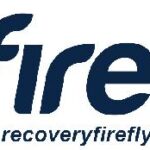It’s natural to feel some increase in your intensity in a competition. You’re putting yourself to the test and want to do your best. But when that increase intensity turns to anxiety that can hurt your performances, that can be a problem. But rather than just resigning yourself to feeling nervous and performing poorly, you can take active steps to reach and maintain your prime intensity so you can performing your best. There are a number of simple “psych-down” techniques you can use to get your intensity back under control.
Deep breathing. When you experience overintensity, one of the first things that’s disrupted is your breathing. It becomes short and choppy and you don’t get the oxygen your body needs to perform its best. The most basic way to lower your intensity then is to take control of your breathing again by taking slow, deep breaths.
Deep breathing has several important benefits. It ensures that you get enough oxygen so your body can function well. By getting more oxygen into your body, you will relax, feel better, and it will give you a greater sense of control. This increased comfort will give you more confidence and enable you to more easily combat negative thoughts (which are often the cause of the overintensity). It will also help you let go of negative emotions such as fear or frustration, and allow you to regain positive emotions such as excitement. Focusing on your breathing also acts to take your mind off of things that may be interfering causing your overintensity.
For athletes who participate in sports that involved a series of short performances, such as baseball, football, tennis, and golf, deep breathing should be a part of your between-performance routine. One place in particular where deep breathing can be especially valuable to reduce intensity is before you begin another performance. If you take two deep breaths at this point, you ensure that your body will be more relaxed, comfortable, and prepared for the upcoming performance.
Muscle relaxation. Muscle tension is the most common symptom of overintensity. This is the most crippling physical symptom because if your muscles are tight and stiff, you simply won’t be able to perform at your highest level. There are two muscle-relaxation techniques you can use away from your sport and, in a shortened form, during competitions: passive relaxation and active relaxation. Similar to deep breathing, muscle relaxation is beneficial because it allows you to regain control of your body and to make you feel more comfortable physically. It also offers the same mental and emotional advantages as does deep breathing.
Passive relaxation involves imagining that tension is a liquid that fills your muscles creating discomfort that interferes with your body performing its best. To prepare for passive relaxation, lie down in a comfortable position in a quiet place where you won’t be disturbed. As you go through the passive relaxation procedure, focus on your breathing, allow the tension to drain out of your muscles, and, at the end, focus on your overall state of mental calmness and physical relaxation.
Active relaxation is used when your body is very tense and you can’t relax your muscles with passive relaxation. When your intensity is too high and your muscles are tight, it’s difficult to just relax them. So instead of trying to relax your muscles, do just the opposite. Tighten them more, then relax them. For example, before a competition, your muscle tension might be at an 8, where 1 is totally relaxed and 10 is very tense, but you perform best at a 4. By further tightening your muscles up to a 10 , the natural reaction is for your muscles to rebound back past 8 toward a more relaxed 4. So, making your muscles more tense at first then results in them becoming more relaxed.
Active relaxation typically involves tightening and relaxing four major muscle groups: face and neck, arms and shoulders, chest and back, and buttocks and legs. It can also be individualized to focus on particular muscles that trouble you the most.
To prepare for passive relaxation, lie down in a comfortable position in a quiet place where you won’t be disturbed. For each muscle group, tighten your muscles for five seconds , release, and repeat. As you go through the active relaxation procedure, focus on the differences between tension and relaxation, be aware of how you are able to induce a greater feeling of relaxation, and, at the end, focus on your overall state of mental calmness and physical relaxation.
These two relaxation procedures can also be used during a competition (for those sports comprised of a series of short performances) in an abbreviated form. Between performances, you can stop for five seconds and allow the tension to drain out of tense parts of your body (passive relaxation) or tighten and relax the tense muscles (active relaxation).
Slow the pace of competition. A common side effect of overintensity is that athletes tend to speed up the tempo of competition. Athletes in sports such as tennis, golf, baseball, and football can rush between performances almost as if they want to get the competition over with as soon as possible. So, to lower your intensity, slow your pace between performances. Simply slowing your pace and giving yourself time to slow your breathing and relax your muscles will help you lower your intensity to its prime level.
Process focus. One of the primary causes of overintensity is focusing on the outcome of the competition. If you’re worried about whether you will win or lose, you’re bound to get nervous. The prospect of losing is threatening, so that will make you anxious. The thought of winning, especially if it’s against an opponent you have never defeated before, can also be anxiety provoking because it may be unfamiliar or unexpected to you.
To reduce the anxiety caused by an outcome focus, redirect your focus onto the process. Ask yourself, what do I need to do to perform my best? This process focus can include paying attention to your technique or tactics. Or it might involve focusing on mental skills such as positive thinking or the psych-down strategies I am currently describing. You can also shift your focus onto your breathing which will take your mind off of the outcome and will directly relax your body by providing more oxygen to your system.
A process focus takes your mind off things that cause your over-intensity and shifts your focus onto things that will reduce your anxiety, build your confidence, and give you a greater sense of control over your sport.
Keywords. Another focusing technique for lowering your intensity is to use what I call intensity keywords. These words act as reminders of what you need to do with your intensity to perform your best. Keywords are especially important in the heat of a tight competition when you can get so wrapped up in the pressure that you forget to do the things you need to do in order to perform your best. By saying the keyword between performances, you’ll be reminded to use the psych-down techniques when your intensity starts to go up. I also recommend that you write one or two keywords on a piece of tape which you then put on a piece of your equipment. Looking at the equipment acts as a further reminder to follow the keyword and lower your intensity.
Music. Music is one of the most common tools athletes in many sports use to control their intensity. We all know that music has a profound physical and emotional impact on us. Music has the ability to make us happy, sad, inspired, and motivated. Music can also excite or relax us. Many world-class and professional athletes listen to music before they compete to help them reach their prime intensity.
Music is beneficial in several ways. It has a direct effect on you physically. Calming music slows your breathing and relaxes your muscles. Simply put, it makes you feel good. Mentally, it makes you feel positive and motivated. It also generates positive emotions such as joy and contentment. Finally, calming music takes your mind off of aspects of the competition that may cause doubt or anxiety. The overall sensation of listening to relaxing music is a generalized sense of peace and well-being.
Smile. The last technique for lowering intensity is one of the strangest and most effective I’ve ever come across. A few years ago, I was working with a young professional athlete who was having a terrible practice session. She was performing very poorly and her coach was getting frustrated with her. She approached me during a break feeling angry and depressed, and her body was in knots. She asked me what she could do. I didn’t have a good answer until an idea just popped into my head. I told her to smile. She said, I don’t want to smile. I told her to smile. She said she was not happy and didn’t want to smile. I told her again to smile. This time, just to get me off her back, she smiled. I told her to hold the smile. During the next two minutes there was an amazing transformation. As she stood there with the smile on her face, the tension began to drain out of her body. Her breathing became slow and deep. She said that she was feeling better. In a short time, she was looking more relaxed and happier. She returned to practice, her performance improved, and she made some progress during the remainder of the practice session.
Her response was so dramatic that I wanted to learn how such a change could occur. When I returned to my office, I looked at the research related to smiling and learned two things. First, as we grow up, we become conditioned to the positive effects of smiling. In other words, we learn that when we smile, it means we’re happy and life is good. Second, there’s been some fascinating research looking at the effects of smiling on our brain chemistry. What this research has found is that when we smile, it releases brain chemicals called endorphins which have an actual physiologically relaxing effect.
For all of these psych-down techniques to be effective, you should rehearse them in practice and less important competitions. The goal is to ingrain them so well that when you get to a major competition where you are likely to feel nervous, you will automatically use them, your intensity will decrease to a more comfortable level, and you will be better prepared to performance your best.





